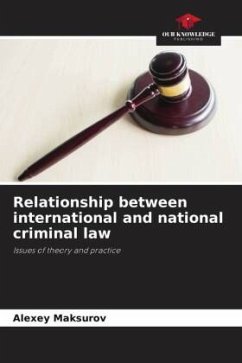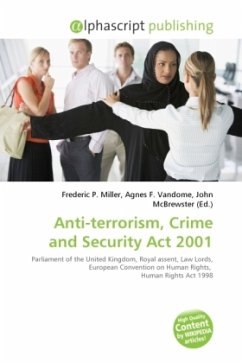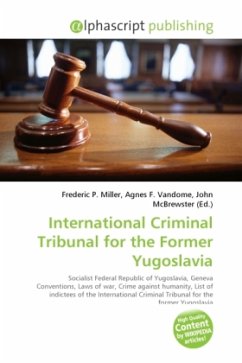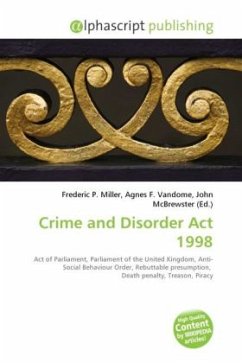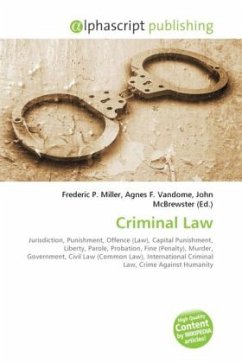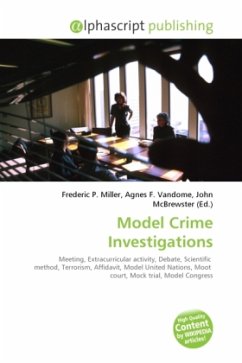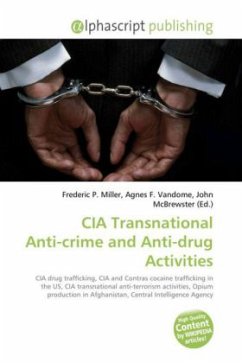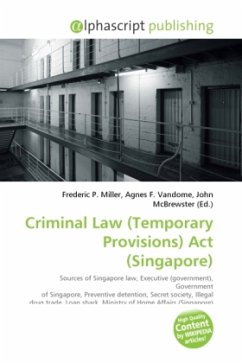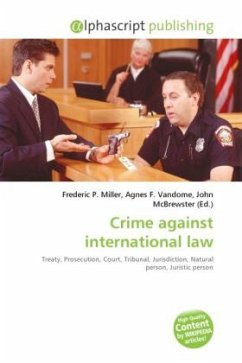
Crime against international law
Versandkostenfrei!
Versandfertig in 6-10 Tagen
19,99 €
inkl. MwSt.

PAYBACK Punkte
10 °P sammeln!
A number of crimes against international law are created by treaty and convention. Some of these crimes are prosecuted before international courts and tribunals. But more difficult questions of jurisdiction arise when the issue is whether a person, natural or fictitious, can be prosecuted for breach of public international law in the municipal courts of the state in which an arrest is made. Under s51 International Criminal Court Act 2001, genocide and crimes against humanity committed either in the UK or by UK nationals abroad can be prosecuted but, as a dualist nation, other prosecutions can ...
A number of crimes against international law are created by treaty and convention. Some of these crimes are prosecuted before international courts and tribunals. But more difficult questions of jurisdiction arise when the issue is whether a person, natural or fictitious, can be prosecuted for breach of public international law in the municipal courts of the state in which an arrest is made. Under s51 International Criminal Court Act 2001, genocide and crimes against humanity committed either in the UK or by UK nationals abroad can be prosecuted but, as a dualist nation, other prosecutions can only be mounted where the UK has acceded to the Treaties and Conventions that create the offences including: war crimes, torture, and enslavement and forced labour offences. The criminal jurisdiction is presumed territorial in the absence of express words and based on the presence of the accused within the jurisdiction.



